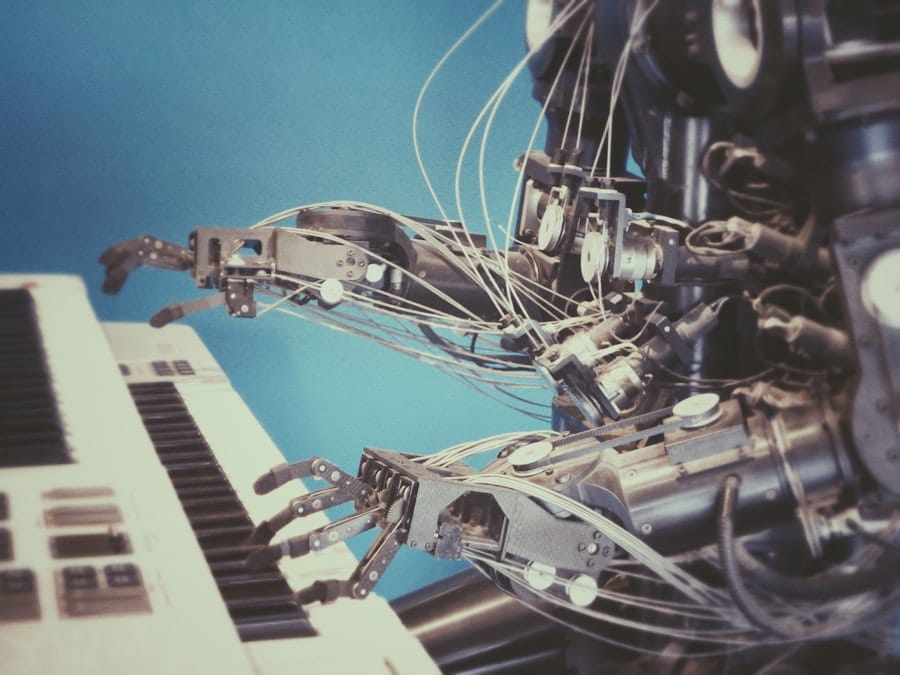Space cargo logistics is an intricate and rapidly evolving field that plays a crucial role in the burgeoning space economy. As humanity’s ambitions extend beyond Earth, the need for efficient transportation of goods, equipment, and scientific instruments to and from space has become paramount. This sector encompasses a wide range of activities, including the planning, execution, and management of cargo missions, which are essential for supporting various endeavors such as satellite deployment, space station resupply, and interplanetary exploration.
The logistics of moving cargo in the harsh environment of space presents unique challenges that require innovative solutions and advanced technologies. The significance of space cargo logistics is underscored by the increasing number of commercial entities entering the space industry. Companies like SpaceX, Blue Origin, and Northrop Grumman are not only launching satellites but also providing resupply missions to the International Space Station (ISS) and developing plans for lunar and Martian missions.
As these activities expand, the logistics framework must adapt to accommodate larger payloads, more frequent launches, and the complexities of interplanetary travel. The integration of advanced technologies, particularly artificial intelligence (AI), is becoming essential to streamline operations, enhance safety, and reduce costs in this dynamic environment.
Key Takeaways
- Space cargo logistics involves the transportation of goods and supplies to and from space, including to space stations and other celestial bodies.
- Current challenges in space cargo logistics include high costs, limited payload capacity, and the need for efficient route planning and maintenance.
- AI can improve space cargo logistics by optimizing route planning, enabling predictive maintenance, and enhancing inventory management.
- AI-driven predictive maintenance for spacecraft involves using data and machine learning to anticipate and prevent potential issues before they occur.
- AI-enabled route optimization for space cargo missions utilizes algorithms to find the most efficient and cost-effective paths for spacecraft to travel.
The Current Challenges in Space Cargo Logistics
Despite the advancements in technology and the growing interest in space exploration, space cargo logistics faces several significant challenges. One of the primary issues is the high cost associated with launching payloads into orbit. The expenses involved in manufacturing, transporting, and launching spacecraft can be astronomical, often limiting the frequency and scale of missions.
Additionally, the logistics of coordinating multiple launches and ensuring timely delivery of cargo to various destinations in space can be daunting. Delays or failures in any part of the supply chain can have cascading effects on mission timelines and objectives. Another challenge is the unpredictable nature of space environments.
Factors such as weather conditions, orbital debris, and technical malfunctions can disrupt planned missions. For instance, a launch may be delayed due to adverse weather conditions at the launch site or in the trajectory path. Furthermore, once in space, cargo must be managed carefully to ensure it remains intact during transit and is delivered to the correct location.
The complexity of these operations necessitates a robust logistics framework that can adapt to changing circumstances while maintaining safety and efficiency.
How AI Can Improve Space Cargo Logistics

Artificial intelligence has emerged as a transformative force across various industries, and its potential applications in space cargo logistics are particularly promising. By leveraging AI technologies, organizations can enhance decision-making processes, optimize resource allocation, and improve overall operational efficiency. One of the most significant advantages of AI is its ability to analyze vast amounts of data quickly and accurately.
This capability allows for better forecasting of demand for cargo services, enabling companies to plan their missions more effectively. Moreover, AI can facilitate real-time monitoring and management of cargo during transit. By utilizing machine learning algorithms and predictive analytics, logistics providers can track the status of shipments, anticipate potential issues, and implement corrective measures proactively.
For example, if a spacecraft encounters unexpected conditions during its journey, AI systems can analyze telemetry data to recommend adjustments to its trajectory or operational parameters. This level of responsiveness can significantly enhance mission success rates and reduce the likelihood of costly delays.
AI-Driven Predictive Maintenance for Spacecraft
One of the critical areas where AI can make a substantial impact is in predictive maintenance for spacecraft. Traditional maintenance practices often rely on scheduled inspections or reactive measures following equipment failures. However, in the context of space missions, where repair opportunities are limited and costly, a more proactive approach is essential.
AI-driven predictive maintenance utilizes data from sensors embedded in spacecraft systems to monitor their health continuously. By analyzing historical performance data alongside real-time telemetry, AI algorithms can identify patterns that indicate potential failures before they occur. For instance, if a particular component shows signs of wear or deviation from its normal operating parameters, AI can alert engineers to take preventive action.
This capability not only enhances safety but also extends the lifespan of spacecraft systems by ensuring that maintenance is performed only when necessary rather than on a fixed schedule. Furthermore, predictive maintenance can lead to significant cost savings by reducing downtime and minimizing the need for extensive repairs during missions. In an environment where every minute counts, especially during critical phases such as launch or docking maneuvers, having reliable systems that are less prone to failure can make all the difference in mission success.
AI-Enabled Route Optimization for Space Cargo Missions
Route optimization is another area where AI can revolutionize space cargo logistics. The journey from Earth to various destinations in space involves complex trajectories that must account for gravitational forces, orbital mechanics, and fuel efficiency. Traditionally, route planning has been a labor-intensive process requiring extensive calculations and simulations by aerospace engineers.
However, AI can streamline this process by employing advanced algorithms that analyze multiple variables simultaneously. AI-enabled route optimization tools can evaluate numerous potential trajectories in real-time, considering factors such as fuel consumption, travel time, and safety margins. For example, when planning a mission to deliver supplies to the ISS, an AI system can quickly assess different launch windows and orbital paths to determine the most efficient route that minimizes fuel usage while ensuring timely arrival.
Moreover, AI can adapt route plans dynamically based on changing conditions during transit. If a spacecraft encounters unexpected obstacles or must adjust its trajectory due to orbital debris or other hazards, AI systems can recalculate optimal paths on-the-fly.
This level of adaptability is crucial for maintaining mission integrity in an environment where unpredictability is a constant factor.
The Role of AI in Autonomous Spacecraft Operations

The advent of autonomous spacecraft operations represents a significant leap forward in space logistics capabilities. With advancements in AI technologies, spacecraft can now perform complex tasks without direct human intervention. This autonomy is particularly beneficial for missions that require long-duration travel or operate in remote environments where communication delays with Earth are inevitable.
AI systems enable spacecraft to make real-time decisions based on sensor data and pre-defined parameters. For instance, during a resupply mission to a lunar base, an autonomous spacecraft equipped with AI could navigate to its destination while avoiding obstacles and optimizing its fuel usage without waiting for instructions from ground control. This capability not only enhances operational efficiency but also allows for more ambitious missions that would be challenging or impossible with traditional human-operated systems.
Additionally, autonomous operations reduce the burden on mission control teams by allowing them to focus on higher-level strategic planning rather than day-to-day operational management. As spacecraft become increasingly capable of handling their own navigation and decision-making processes, human operators can concentrate on mission objectives and long-term goals rather than micromanaging every aspect of flight.
AI-Enhanced Inventory Management for Space Cargo
Effective inventory management is critical for successful space cargo logistics. Ensuring that the right supplies are available at the right time is essential for supporting ongoing missions and scientific research in space. AI-enhanced inventory management systems can revolutionize how organizations track and manage their cargo assets throughout their lifecycle.
By utilizing machine learning algorithms to analyze historical usage patterns and predict future demand for various supplies—such as food, equipment parts, or scientific instruments—AI systems can optimize inventory levels accordingly. For example, if a particular type of equipment has historically been used more frequently during specific missions or experiments, an AI system can recommend increasing stock levels for those items ahead of upcoming launches. Moreover, AI can facilitate real-time tracking of inventory as it moves through different stages of the supply chain—from manufacturing to storage to launch preparation.
By integrating IoT devices with AI analytics platforms, organizations can gain visibility into their inventory status at any given moment. This capability allows for better coordination between suppliers and logistics providers while minimizing waste and ensuring that critical supplies are always available when needed. In addition to improving efficiency within individual organizations, AI-enhanced inventory management can foster collaboration across the entire supply chain ecosystem.
By sharing data insights with partners—such as manufacturers or transportation providers—companies can create a more integrated approach to managing space cargo logistics.
The Future of AI in Space Cargo Logistics
As we look toward the future of space exploration and commercial activities beyond Earth’s atmosphere, it is clear that artificial intelligence will play an increasingly vital role in shaping the landscape of space cargo logistics. The challenges faced by this sector are complex and multifaceted; however, the integration of AI technologies offers promising solutions that can enhance efficiency, safety, and sustainability. From predictive maintenance that ensures spacecraft remain operational during critical missions to autonomous operations that allow for greater flexibility in navigation and decision-making processes, AI has the potential to transform how we approach logistics in space.
Furthermore, advancements in route optimization and inventory management will enable organizations to streamline their operations while reducing costs associated with launching payloads into orbit. As humanity continues its journey into the cosmos—whether through resupply missions to the ISS or ambitious plans for lunar bases and Mars colonization—the importance of effective logistics cannot be overstated. Embracing AI-driven innovations will be essential for overcoming existing challenges while paving the way for new opportunities in this exciting frontier.
The future of space cargo logistics is bright with possibilities as we harness the power of artificial intelligence to propel us further into the universe.
In a recent article on ENICOMP, the RankAtom Review: The Game-Changing Keyword Research Tool discusses how advanced technology like AI is revolutionizing the way businesses conduct keyword research to improve their online presence. This innovative approach to data analysis mirrors the use of AI in enhancing the efficiency of space cargo logistics, as explored in the original article. Both articles highlight the transformative power of AI in optimizing processes and driving success in various industries.
FAQs
What is the role of AI in space cargo logistics?
AI plays a crucial role in space cargo logistics by optimizing route planning, scheduling, and resource allocation, as well as predicting and mitigating potential risks.
How does AI enhance the efficiency of space cargo logistics?
AI enhances efficiency by automating repetitive tasks, analyzing large volumes of data to make informed decisions, and improving the accuracy and speed of cargo handling processes.
What are the benefits of using AI in space cargo logistics?
The benefits of using AI in space cargo logistics include cost savings, improved safety, reduced human error, and the ability to handle complex logistical challenges more effectively.
What AI technologies are commonly used in space cargo logistics?
Commonly used AI technologies in space cargo logistics include machine learning algorithms for predictive analytics, autonomous robotics for cargo handling, and natural language processing for communication and coordination.
How does AI contribute to risk management in space cargo logistics?
AI contributes to risk management by analyzing historical data to identify potential risks, simulating different scenarios to assess their impact, and providing real-time insights to help mitigate risks during cargo transportation and handling.

